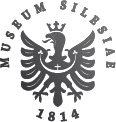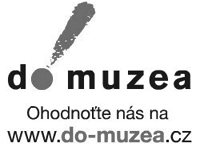Slezský sborník
rok 2010
ročník 108
číslo 1–2
Obsah / Contents
Studie / Articles (s. 5–110)
Robert ANTONÍN: Jan Lucemburský a slezská knížata v letech 1327–1329
s. 5–21
John the Blind and Princes of Silesia in the Years 1327–1329
The study based on the analysis of narrative sources and sources of diplomatic character shows that in Polish politics of John the Blind in the 1320s is discernible a long-term tendency to subdue the Silesian territories. Firstly, they formed a buffer zone between the traditional Bohemian crown lands and parts of Poland that were controlled by Władysław I the Elbow-high (Pol. Łokietek), secondly, they represented an important centre of Central-European economy.
Key Words: Middle Ages; history of Silesia; John the Blind; John of Bohemia; John of Luxembourg; 14th century; Princes of Silesia
Mario MÜLLER: Der Glogauer Erbfolgestreit (1476–1482) zwischen den Markgrafen von Brandenburg, Herzog Johann II. von Sagan und Matthias Corvinus, König von Ungarn und Böhmen
s. 22–59
The Głogów war of succession (1476–1482) between the margrave of Brandenburg, Duke John (Johann) II of Żagań and King Matthias Corvinus of Hungary and Bohemia
The Głogów (Germ. Glogau) war of succession describes the war between the margrave of Brandenburg and Duke John II of Żagań (Germ. Sagan) over the Duchy of Głogów. It broke out after the death of Duke Henry XI on February 22nd, 1476, and found its end in the Treaty of Kamenz in September 1482. This war of succession obtained nationwide significance because of the contemporary confusion over the Bohemian throne, fought between King Matthias and Vladislav II, son of the Polish King Casimir IV Jagiełło. Matthias, basically the feudal lord of Silesia and thus also of the Duchy of Głogów, not only supported Duke John in the fight against Brandenburg, but he also managed to include the dukes of Pomerania. In 1479 he made lasting peace with Vladislav in Olomouc (Germ. Olmütz). Thereby the family of the Brandenburg margrave could not realize its aims, claiming the Duchy of Głogów through Barbara, the widow of the late Duke Henry XI and daughter of Prince Elector Albrecht Achilles. Barbara’s second and unconsummated marriage with King Vladislav failed and the significant part of the inherited duchy went to John of Żagań until he was overthrown in 1488. Barbara, or rather her brother John, Regent of the Brandenburg March, obtained the area around the towns of Krosno Odrzańskie (Germ. Crossen), Sulechów (Germ. Züllichau) and Lubsko (Germ. Sommerfeld). Both areas of rule of the thus permanently divided duchy remained as a fief under the influence of Matthias of Hungary and Bohemia. Vladislav, although being the spouse of Barbara by canon law, did not claim this duchy until 1490, the year the Hungarian king died.
Key words: Bohemian King, Duchy of Głogów (Glogau), John II of Żagań (Sagan), Matthias Corvinus, Silesia, Vladislav, war of succession
Mlada HOLÁ: Holdovací cesta krále Matyáše do Vratislavi v roce 1611
s. 60–78
Oath-taking journey of Matthias to Wrocław from year 1611
The analytic study is dedicated to the oath-taking journey of Matthias to Wrocław (Germ. Breslau) in 1611. It depicts the preparations for the king’s arrival, particular phases of the actual solemn entrance on 18th September (i.e. greeting by delegations, entering the city, welcoming by the bishop of Wrocław, solemn service in St. John Baptist’s Cathedral, accommodation of the king in patrician houses in the square), the oath of allegiance of Silesian estates, and further events which occurred during the sovereign’s long stay in the Silesian metropolis (until October 17, 1611). Preserved sources give us a thorough depiction of this period, especially of some aspects of the voyage. Particularly well covered are the extensive preparations in the city for the solemn entrance of the sovereign, whose aim was to impress him.
Key words: Wrocław (Breslau), Matthias, Bohemian king, oath-taking journey, ceremonial (solemn) entry, tributes
Jiří FRIEDL: Otázka zaměstnávání dělníků z Polska na Těšínsku v letech 1945–1947
s. 79–91
The Question of Employment of Workers from Poland in the Těšín Region in the years 1945–1947
The essay is based on documents from Czech and Polish archives. It analyzes the question of employment of workers from Poland in the Czechoslovak part of the Těšín Region – mainly in mines and iron works. Czechoslovakia suffered from lack of labour power so these workers were welcomed. But on the other hand, mainly members of the Czechoslovak national-socialist party pointed out that these Poles could be dangerous elements and due to them the number of Poles in the Těšín Region could rise. Employment of workers from Poland in the Těšín Region became a problem which had to be solved but until the coup d’état in February 1948 the Czechoslovak authorities had not done that. As the communists seized the power in Czechoslovakia the situation became better because the communists were friendlier to the Polish minority. The question of employment of workers from Poland also reflects the internal political situation in Czechoslovakia before February 1948 (rivalry between communists and democratic parties).
Key words: Czechoslovakia; Polish minority; Těšín Region, Twentieth Century
Sandra KREISSLOVÁ: K problematice etnického a jazykového vědomí německy hovořícího obyvatelstva v pohraničním okrese Chomutov
s. 92–110
To the Problems of Ethnic and Language Feeling of German-speaking Inhabitants in the Border District of Chomutov
The article focuses on the problems of relation of ethnic identification and language. The question of the role of a language for the construction of ethnic identification in biographical narratives of informants is particularly stressed. This topic has been pursued on the example of Germans that stayed in the country after the compulsory expatriation of German-speaking inhabitants from Czechoslovakia and through several generations, they have lived in an ethnically and linguistically heterogeneous environment. From the aspect of the territorial determination, the text is set in the border district of Chomutov, which has been formed by German-speaking inhabitants for centuries. The problems are reflected from the ethnic aspect and a biographical method has been chosen as the crucial method for fieldwork. Collected biographical texts illustrate possible perceptions of ethnic identification and the mother tongue, namely from the position of a particular participant and from the generation aspect. The language situation in the Chomutov region has also been dealt.
Key Words: ethnic identification, language, German minority in the region of Chomutov, memory, biogra-phical method, language situation.
MATERIÁLY / MATERIALS (s. 111–116)
Marek SKUPIEN: Katalog listin uložených na faře v Hlučíně
s. 111–116
The Catalogue of Documents Deposited in the Presbytery in Hlučín
The contribution in the form of a catalogue makes accessible a collection of 23 documents from 1450–1742 deposited in the presbytery of the Roman-catholic parish office in the town of Hlučín. The documents have been scarcely used in professional literature so far. They are mainly documents of foundation character that have a connection to the Hlučín parish church of St John the Baptist. The text of some documents forms a part of copies in the so-called “Liber fundationum” of the Hlučín parish church. This book is also deposi-ted in the State District Archives Opava.
Key Words: catalogue, documents, Hlučín, parish church of St John the Baptist
Recenze / Reviews (s. 117–123)
Zprávy o literatuře / Brief Notices (s. 124–141)
Kronika / Chronicle (s. 142–156)
Bibliografická příloha / Bibliography (s. 157–159)
Poslední aktualizace článku: 04.10.2015
Vytisknout celý článek







